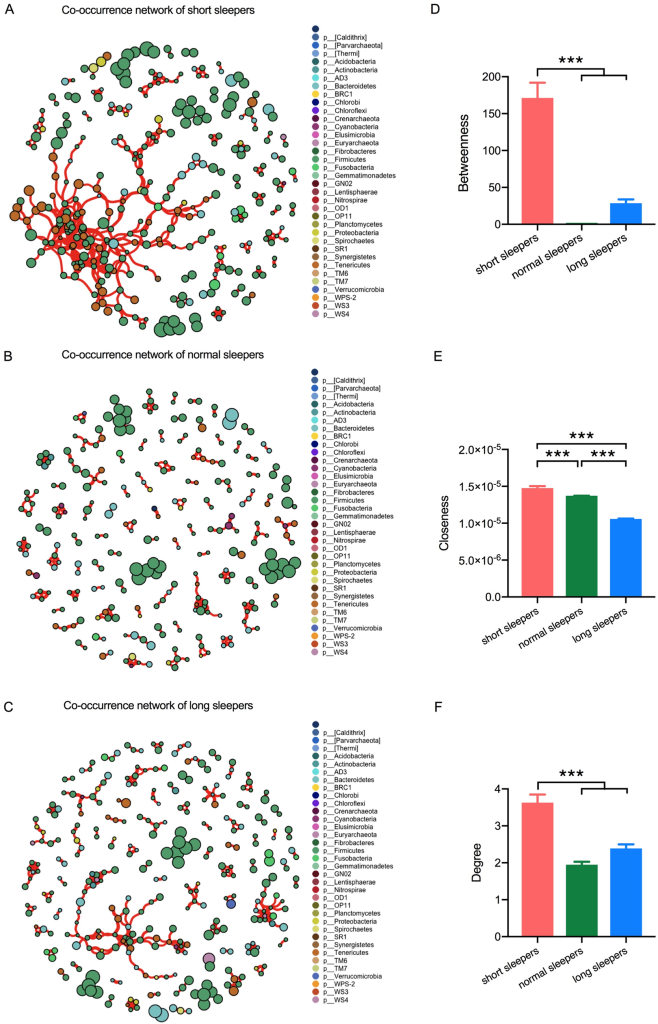A special edition blog for the sleepless… Many studies are looking at the microbiome with co-morbid conditions — making conclusions difficult.
- “Growing evidence suggests bi-directional links between gut microbiota and sleep quality as shared contributors to health.” [2023]
- “Contrary to expectations, timed feeding rendered animals more sensitive to stress” [2023] — so eating by the clock and not the light impacts stress negatively.
- “In older adults, shorter sleep duration is associated with an increase in pro-inflammatory bacteria whereas increasing sleep quality is positively associated with an increase of beneficial Verrucomicrobia and Lentisphaerae phyla.” [2022]
- Lachnoclostridium (genus) correlates positively with sleep efficiency, Blautia (genus) correlates negatively [2022]
- “several taxa (Lachnospiraceae, Corynebacterium, and Blautia) were negatively correlated with sleep measures” [2017]
- “Blautia and Eubacterium hallii were microbe markers in the sleep-disordered population” [2022]
- “Relative abundances of Streptococcus salivarius and Veillonella were independent predictors of sleep disturbances in MHE patients” [2022]
- “class Mollicutes in subjects with poor sleep quality were lower than in the healthy individuals. [2022]
- “The relative abundance of Sutterella was significantly lower (0.38% vs. 1.25%) and that of Pseudomonas was significantly higher (0.14% vs. 0.08%) in short sleepers than in normal sleepers” [2021]
For what reduces Blautia click here (melatonin supplement and camelina seed). Click here for Lachnoclostridium list (also includes melatonin supplement and camelina seed). Since populations change during the day (See Changing your Microbiome Results by when you take your sample!) you want to avoid substances that FEED these bacteria likely 4+ hours before bed. For list of items, see Supplements to avoid before bed…
Shift them to the morning times

“men with poor sleep (PSQI >5) tended to have lower alpha-diversity compared to men with normal sleep (Faith’s PD, beta= -0.15; 95% CI:-0.30-0.01, p=0.06). Sleep regularity was significantly associated with robust Aitchison distances (RPCA) and (phylogenetic-RPCA) PRPCA, even after adjusting for site, batch, age, ethnicity, body mass index, diabetes, antidepressant and sleep medication use, and health behaviors”
Association of subjective and objective measures of sleep with gut microbiota composition and diversity in older men: The Osteoporotic Fractures in Men (MrOS) study [2023]
- the top 5 positively associated with sleep regularity were Faecalibacterium prausnitzii G, OEMS01 sp0900199405, Oscillibacter valericigenes, Faecalibacterium prausnitzii A, and Faecalibacterium prausnitzii C.
- [Poorer sleep] associated with Ruthenibacterium lactatiformans, Bacteroides uniformis, Alistipes putredinis, and Escherichia dysenteriae

Many Probiotics have some effect
My personal experience is that for most probiotics, taking just before bedtime helps with sleep. I say most — because a few of them will actually cause issues with falling a sleep.
Ken Lassesen
If you have single strains probiotics, you may wish to experiment with the impact of individual strains. Take one strain consistently at bed time, with a significant dosage, for a few days to see the impact (if any). One’s that cause wakefulness, may be ones you should take in the morning.
- Improvements in sleep indices during exam stress due to consumption of a Bifidobacterium longum. [2020]
- Probiotics, prebiotics and postbiotics for better sleep quality: a narrative review [2022]
- The gut microbiome as a target for adjuvant therapy in insomnia disorder. [2022]
- Effects of Lactobacillus plantarum PS128 on Depressive Symptoms and Sleep Quality in Self-Reported Insomniacs: A Randomized, Double-Blind, Placebo-Controlled Pilot Trial. [2021]
- Effects of Probiotic NVP-1704 on Mental Health and Sleep in Healthy Adults: An 8-Week Randomized, Double-Blind, Placebo-Controlled Trial. [2021]
- Effects of Supplementation with Lactobacillus Probiotics on Insomnia Treatment. [2021]
- Para-psychobiotic Lactobacillus gasseri CP2305 ameliorates stress-related symptoms and sleep quality. [2017]
Superb info plus well presented
Thank you
Do you have a reference for bacteroides Uniformis being associated with poorer sleep? Sorry I didn’t see it in the papers I looked at.
Nothing that is a clean reference: Increased physical activity improves gut microbiota composition and reduces short-chain fatty acid concentrations in older adults with insomnia [2022] has bacteroides Uniformis associated to less physical activity, and more physical activity reducing insomnia.